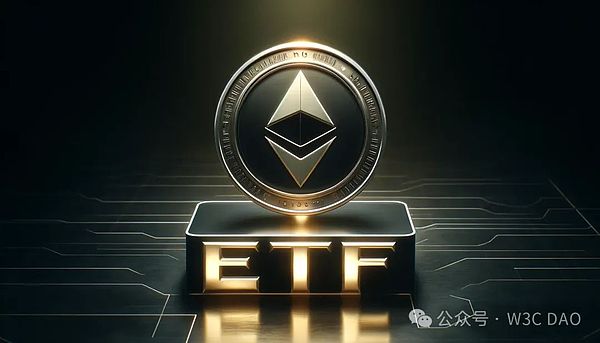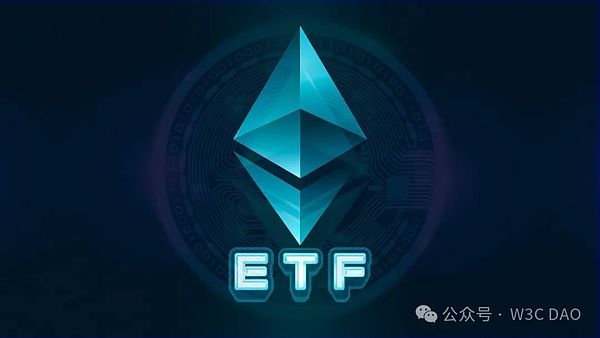The launch of a U.S. spot ether exchange-traded fund (ETF), which many expected to launch as early as July 2, has been delayed by the U.S. Securities and Exchange Commission (SEC).
On June 29, The Block reported that the SEC had returned the S-1 form to the potential Ethereum ETF issuer with a small number of comments, requiring that the comments be processed and resubmitted by July 8.
Sources noted that once the form is returned, it will not be the final filing. This means that at least one more round of filings will need to take place before the ETF can finally begin trading.
SEC Delays Process
The SEC commented on the S-1 form and asked for a resubmission by July 8. According to Balchunas, this new timeline means that the launch of the spot Ethereum ETF may be delayed until at least mid-to-late July.

ETF Store President Nate Geraci pointed out that the last round of S-1 amendments was relatively small, and the SEC is expected to approve the issuer to trade within 14-21 days. Although the exact timeline remains uncertain, the SEC has indicated that it may be launched this summer.
Earlier in early June, Balchunas predicted that the ETF would be launched in early July, but this is no longer possible because the SEC staff did not make significant comments on the ETF applicant's S-1 filing.
Two-Step Process for Ethereum ETFs
The approval of the Form S-1 is the second part of the two-step process required for an ETF to be listed. The first part involved the approval of the issuer's Form 19b-4 in May. On May 23, the SEC approved the Form 19b-4 from eight ETF bidders.
Unlike the Form 19b-4, the Form S-1 is not subject to a specific deadline, and issuers can rely on the SEC's timeline for review.
The SEC has approved a rule change that allows major issuers to participate in the process, including BlackRock, Fidelity, 21Shares, Grayscale, Franklin Templeton, VanEck, iShares, and Invesco. Additionally, issuers such as VanEck have filed Form 8-A and are ready to list on exchanges by July 8.
While on June 26, SEC Chairman Gary Gensler previously said that approval of an Ethereum ETF could come “sometime this summer,” no clearer timeline was provided.
While there were reports that the ETF could be listed as early as July 4, that is no longer possible. Issuers do not yet know when the ETF will be listed. They will only know the exact listing time once the SEC gives them a deadline to submit final documents.
The SEC puts the blame for the listing of the Ethereum ETF on the applicants, claiming that the process is entirely dependent on their response time.
Bloomberg ETF analyst Eric Balchunas wrote on the X platform, "It looks like we have to postpone the expected listing of the spot Ethereum ETF until after the holiday. I heard that the SEC spent more time responding to people this week (although it was only some very minor adjustments), and from what I heard, next week will be relatively idle due to the holiday. The approval process will resume on July 8, and then they will start listing soon."
Gary Gensler, chairman of the U.S. Securities and Exchange Commission (SEC), recently said that it is expected to see the listing of the spot Ethereum ETF as early as September.
The significance of the listing of the Ethereum ETF
Galaxy Research said in a report that once the Ethereum spot ETF is approved for trading, the monthly net inflow of funds may reach US$1 billion.
It is expected that the net inflow of ETH ETFs in the first five months will reach 20-50% of the net inflow of BTC ETFs, and Galaxy's target is 30%, which means a net inflow of $1 billion per month.

At the same time, Galaxy warned that the demand for spot Ethereum ETFs may be limited due to the lack of staking rewards.
The outflow of funds from the Grayscale Ethereum Trust (ETHE) may also drag down the inflow of funds for the Ethereum ETF. Galaxy estimates that these negative outflows may reach about 319,000 ETH or $1.1 billion per month.
Bitwise believes that $15 billion in inflows over the next 18 months is a good start. The agency believes that ETH is a compelling asset that powers the world's most versatile blockchain. Even $15 billion in net new demand will have a huge impact on the Ethereum market.
 Hafiz
Hafiz






